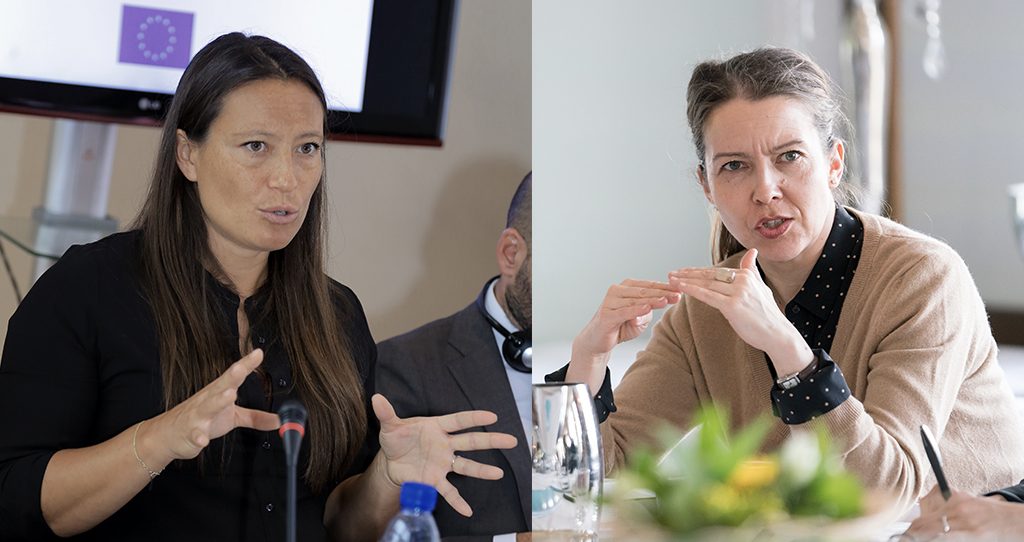Peacemaking and the corona crisis: Virtual dialogues keep up the momentum
Face to face meetings have now changed into video calls and instant messaging. How can virtual dialogues build trust between conflict parties and keep up the momentum? On 7 May CMI organised a small webinar for our private donors and other Finnish stakeholders. Our experts Sylvia Thompson and Elisa Tarnaala shared their thoughts on COVID-19 and its impact on CMI’s work.

CMI’s Senior Manager Sylvia Thompson and Senior Advisor Elisa Tarnaala.
In countries like Yemen and Libya, the global coronavirus pandemic is in many ways just one more crisis among others. These countries have struggled for years with violent conflict, instability, and political divisions. Their citizens are used to emergencies. But how long can these societies cope if such crises keep piling up and peace efforts are halted?
For CMI, building trust and keeping up dialogue are some of the key elements of pursuing peace. We bring people together, and it becomes easier when you can actually see them in front of you and shake their hands. At present this is not possible in many of the contexts in which we work. Peace efforts have been disrupted by the coronavirus, and yet the work continues. CMI staff now rely on virtual platforms for creating dialogue. We are convinced that in the long term technology will be increasingly used in peacemaking to bring people together. Apart from anything else, it enables the greater inclusion of all key groups.
Will all future conflict resolution be done digitally?
Face to face meetings are still very much needed, stresses Senior Manager Sylvia Thompson, who manages CMI’s project in Yemen. In addition to official meetings, the informal get-togethers that take place alongside the meetings are important for nurturing understanding. This is something that is hard to create online. “But we can see many positive changes too, especially in how we work with our partners virtually. Cooperation has been close”, Thompson adds.
CMI is fortunate to already have good connections and networks in the field. It would be difficult to generate new ones via online platforms, says CMI’s Senior Advisor Elisa Tarnaala. “It’s now important to keep up the momentum with the connections we already have”.
CMI teams are used to working together remotely because we have international staff. We are experienced in organising virtual dialogues, and we are continuously exploring new and efficient online platforms.
Women quick to respond and act
The pandemic impacts women disproportionately. For example, domestic violence is increasing due to quarantining. Despite this, women have continued to play an important role in the COVID-19 response.
In Libya, women have been quick in responding to the global pandemic. They took rapid action and started proactively to find ways to raise COVID-19 awareness and come up with new channels to reach people, explains Tarnaala. All this took place in just a matter of days.
This have been the case in Yemen too. Thompson says that women have been quick to react and adapt to the new situation. Women’s networks have come together, and for example strongly advocated for the global ceasefire called for by the UN Secretary-General António Guterres.
“The resilience we see in people working and living in such difficult circumstances is astounding”, says Tarnaala.